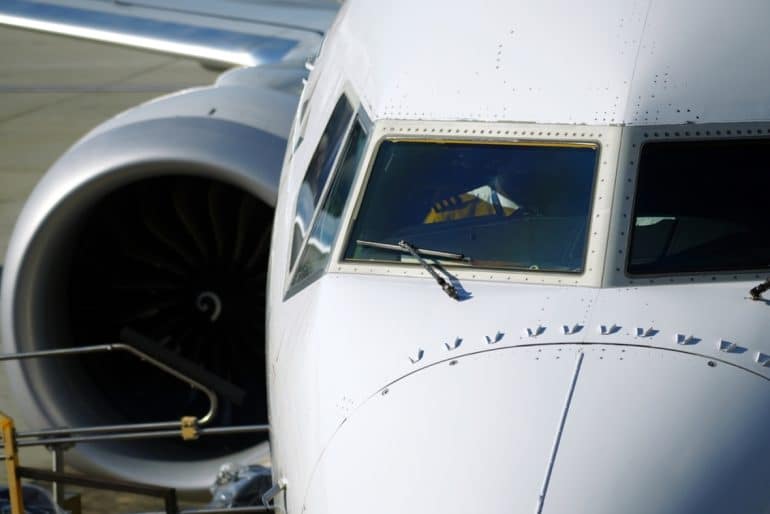Four public interest witnesses, including an engineer and other former Boeing employees, testified yesterday Wednesday before a US Senate investigation committee and warned that there are "serious problems" in the production processes of the 737 Max, 787 Dreamliner and 777 models of the American aeronautical giant .
"I am not here because I had any desire to come here. I'm here because (…) I don't want to see a 787 or a 777 crash," Sam Salepour, a quality control engineer at Boeing for seventeen years, told senators that he has "serious concerns about the safety of the 787" and the 777. .
"I was ignored. I stepped aside. They told me to plug it. I received threats against my physical integrity," the engineer continued. "If something happens to me, I have a clear conscience because I feel that (…) by testifying openly, I will save numerous lives."
The Senate inquiry was sparked by a letter from industry lawyers to the FAA.
The hearing, which lasted nearly two hours, was the first of a series during which Boeing and FAA officials will be called to testify, said Democratic Sen. Richard Blumenthal, chairman of the investigative committee.
"There are increasingly serious allegations that the safety culture at Boeing has broken down and that its practices are unacceptable," Mr. Blumenthal said, adding that he had received several such testimonies in recent days.
"We know we still have a lot of work to do and we are taking action across the group," the manufacturer acknowledged after the hearing.
"Retaliation is absolutely prohibited at Boeing," he assured, adding that since January the number of reports filed about production problems by its workers has increased by 500% year-on-year.
"We continue to put safety and quality above all else," the group assured, expressing "confidence" in "the safety and durability of the 787 and 777."
In addition to Mr. Salepour, Ed Pearson, a former Boeing executive who had been involved in particular with the 737 Max program, Joe Jacobsen, who worked 25 years at the FAA after 11 years at Boeing, and Sean Pruchnicki, also testified. aviation security specialist, former commercial airline pilot.
"I did everything I could to tell the world that the Max is still unsafe and to warn the authorities about the dangers in Boeing's production," Mr Pearson explained. But "nothing changed after the two crashes."
737 Max were grounded for a long time around the world after the two crashes, in 2018 and 2019 (346 dead) due to problems in their design, in particular software to avoid loss of support, MCAS, about which they were neither informed nor pilots were trained.
Unless there is "action" and if Boeing's leaders do not take "their responsibilities", every person "boarding an aircraft" of the American industry "will be at risk", said Mr Pearson, according to which surveillance by FAA is "ineffective" and it is retarded, it is a "reaction" to the problems.
Boeing must "commit to real and deep improvements" and "we are committed to holding them accountable every step of the way," the civil aviation authority said.
Mr. Blumenthal has already asked the Justice Department to verify whether Boeing kept the deal it struck in 2021 to avoid being sued over the two crashes. The revelations at the hearing will no doubt increase the pressure even further.
Following Mr. Salepour's complaint, the FAA began investigating both types.
Now three out of four models of commercial aircraft manufactured by the American industry are the subject of investigations by the supervisory body.
It is looking at the entire 737 family after the Jan. 5 incident, when part of an Alaska Airlines 737 Max 9 detached in flight.
In this incident, Mr. Pearson alleged that there was a "criminal" cover-up when Boeing reported, according to the NTSB, the National Transportation Safety Board, that it had no documents on file about the handling of that part at the plant.
The documents "exist", countered Mr Pearson: he explained that he knows because "I personally sent them to the FBI", the federal police, "months ago".
An NTSB spokesman said yesterday that the agency had not received "any documents" on the matter from either Boeing or "any other entity."
